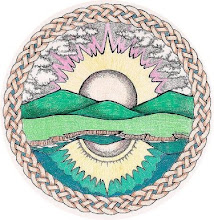Well, what if people like those with whom I am most closely associated applied an appropriate amount of mindfulness to their daily fare of personal interactions?
To my mind that would require, for starters, a whole lot less relating by internet and a whole lot more face time, or second best to that an engaging forum such as Jack and I have created on our Coffee House Conversations by Conference Call forum which, by the way, will be offered again this Thursday evening at 7:00 p.m. Check this link for details.
As the three blog articles linked below suggest, there has been a whole lot of contemplation and fruitful discussion from our last forum.

- The Price We Pay For Our Politics
- Principles and Practices, Not Personalities
- What if…? (the blog article)
- How To Talk About Politics, Race and Religion on our Possible Society In Motion Radio Show, Thursday, 6:30 p.m.
- Coffee House Conversations by Conference Call forum, Thursday, 7:00 p.m.
Contrasting Dialogue and Debate
Courtesy of Everyday Democracy
Dialogue is collaborative: two or more sides work together toward a common understanding.
Debate is oppositional: two sides oppose each other and attempt to prove each other wrong.
In dialogue, finding common ground is the goal.
In debate, winning is the goal.
In dialogue, one listens to the other side(s) in order to understand, find meaning, and find agreement.
In debate, one listens to the other side, in order to find flaws and to counter its arguments.
Dialogue enlarges and possibly changes a participant’s point of view.
Debate affirms a participant’s own point of view.
Dialogue reveals assumptions for reevaluation.
Debate defends critique of the other position.
Dialogue causes introspection on one’s own position.
Debate causes critique of the other position.
Dialogue opens the possibility of reaching a better solution than any of the original solutions.
Debate defends one’s own positions as the best solution and excludes other solutions.
Dialogue creates an open-minded attitude: an openness to being wrong and an openness to change.
Debate creates a closed-minded attitude, a determination to be right.
In dialogue, one submits one’s best thinking, knowing that other people’s reflections will help improve it rather than destroy it.
In debate, one submits one’s best thinking and defends it against the challenge to show that it is right.
Dialogue calls for temporarily suspending one’s beliefs.
Debate calls for investing wholeheartedly in one’s beliefs.
In dialogue, one searches for basic agreements.
In debate, one searches for glaring differences.
In dialogue, one searches for strengths in the other positions.
In debate, one searches for flaws and weaknesses in the other positions.
Dialogue involves a real concern for the other person and seek not alienate or offend.
Debate involves a countering of the other position without focusing on feelings or relationship and often belittles the other person.
Dialogue assumes that many people have pieces of the answer and that together they can put them into a workable solution.
Debate assumes that there is a right answer and that someone has it.
Dialogue remains open-ended.
Debate has a conclusion.

No comments:
Post a Comment